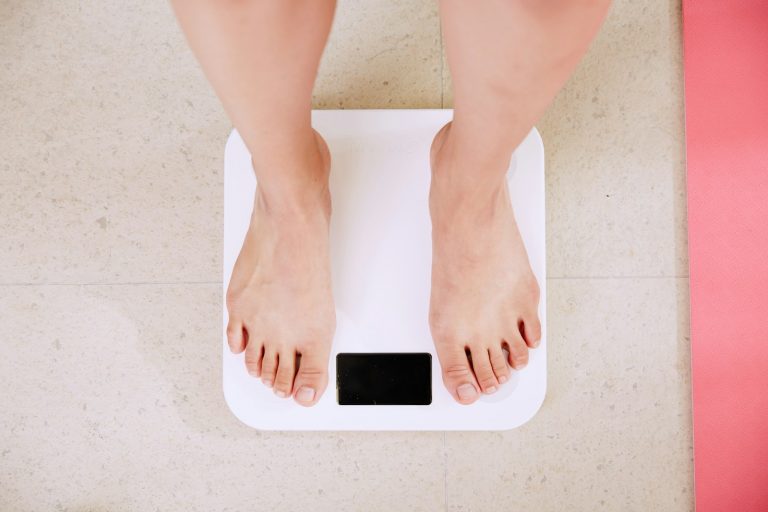Semaglutide, a medication used for treating type 2 diabetes and obesity, has shown impressive results in promoting weight loss. When combined with appropriate dietary choices, its effectiveness can be further enhanced. Eating a balanced diet rich in protein, fiber, and nutrient-dense foods while taking semaglutide can maximize weight loss outcomes and help manage potential side effects.
Individuals using wegovy semaglutide should focus on consuming smaller, more frequent meals throughout the day. This approach helps control appetite and reduces the likelihood of overeating. Additionally, staying well-hydrated and incorporating lean proteins, vegetables, and whole grains into meals can support the medication’s weight-reducing effects.
Story Stages
Key Takeaways
- Focus on smaller, frequent meals with lean proteins and fiber-rich foods
- Stay hydrated and prioritize nutrient-dense options to support weight loss
- Tailor dietary choices to minimize gastrointestinal side effects and maximize results
Nutritional Guidelines to Enhance Semaglutide Efficacy
Proper nutrition plays a crucial role in maximizing the weight loss effects of semaglutide. A balanced diet focused on whole foods can support the medication’s action and help manage potential side effects.
Optimizing Macronutrient Intake for Weight Loss
Protein should make up 20-30% of daily calorie intake. Lean options like chicken, fish, tofu, and legumes are ideal. Aim for 1.2-1.6 grams of protein per kilogram of body weight.
Carbohydrates should account for 40-50% of calories. Focus on complex carbs from whole grains, fruits, and vegetables. These provide fiber, which aids satiety and digestive health.
Healthy fats should comprise 20-30% of calories. Include sources like avocados, nuts, seeds, and olive oil. These support hormone function and nutrient absorption.
A sample meal plan might include:
- Breakfast: Greek yogurt with berries and nuts
- Lunch: Grilled chicken salad with mixed greens and vinaigrette
- Dinner: Baked salmon with quinoa and roasted vegetables
Addressing Common Dietary Concerns
Nausea and vomiting can occur with semaglutide. Eating smaller, more frequent meals may help. Stay hydrated and avoid fatty or spicy foods if they trigger symptoms.
Constipation can be managed by increasing fiber intake gradually. Aim for 25-30 grams daily from fruits, vegetables, and whole grains. Adequate hydration is also crucial.
Blood sugar control is important. Limit processed foods and sugary beverages. Choose low glycemic index foods to prevent blood sugar spikes.
Strategizing Meals Around Semaglutide Treatment
Meal timing can impact semaglutide’s effectiveness. Eat regular, balanced meals to maintain stable blood sugar levels and support the medication’s appetite-suppressing effects.
Consider eating your largest meal earlier in the day when appetite tends to be stronger. As semaglutide reduces hunger, you may naturally eat less later in the day.
Practice portion control by using smaller plates and measuring servings. This can help manage calorie intake without feeling deprived.
Plan meals in advance to ensure nutritional balance. Include a variety of colors and textures to make meals satisfying. This approach supports long-term adherence to a healthy eating pattern.
Lifestyle Modifications To Support Medicinal Weight Loss
Combining lifestyle changes with semaglutide treatment can enhance weight loss results. These modifications focus on diet, exercise, and professional support to maximize the medication’s effectiveness.
Activity Level and Exercise Recommendations
Regular physical activity is crucial for supporting weight loss with semaglutide. Aim for at least 150 minutes of moderate-intensity aerobic exercise per week. This can include brisk walking, cycling, or swimming.
Strength training exercises should be incorporated 2-3 times weekly. These help build lean muscle mass, which boosts metabolism and supports long-term weight maintenance.
Gradually increase activity levels to avoid injury. Start with short sessions and slowly extend duration and intensity. Always consult a healthcare provider before beginning a new exercise regimen.
Stay active throughout the day by taking frequent breaks from sitting. Simple actions like stretching or walking during phone calls can increase overall energy expenditure.
Professional Guidance and Support Systems
Working with healthcare professionals is essential for optimizing semaglutide-assisted weight loss. A registered dietitian can provide personalized nutrition advice tailored to individual needs and preferences.
Regular check-ins with a healthcare provider help monitor progress and adjust treatment plans as needed. They can address any side effects and ensure the medication is working effectively.
Consider joining support groups or working with a health coach. These resources offer motivation, accountability, and practical strategies for overcoming challenges.
Utilize digital tools like fitness trackers or meal-planning apps to stay on track. These can help monitor food intake, physical activity, and progress towards weight loss goals.
Seek mental health support if needed. Managing stress and addressing emotional eating patterns can significantly impact weight loss success.
Conclusion
Dietary recommendations play a crucial role in maximizing weight loss with semaglutide. A balanced, calorie-controlled diet rich in nutrient-dense foods supports the medication’s effectiveness. Emphasizing lean proteins, fruits, vegetables, and whole grains helps promote satiety and overall health.
Portion control and mindful eating are essential habits to cultivate. Regular hydration and limiting processed foods further enhance weight loss efforts. By combining these dietary strategies with semaglutide treatment, individuals can optimize their weight management journey.
